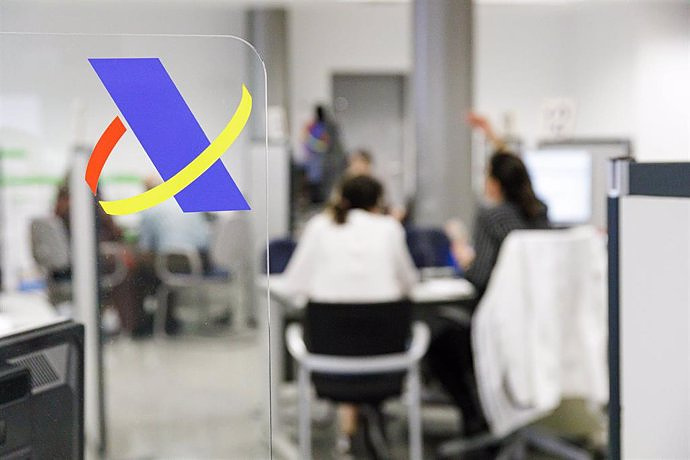When the decision is formalized, the court will decide who will replace Díez to take charge of the presentation
MADRID, 19 Ene. (EUROPA PRESS) -
The magistrate of the Constitutional Court (TC) Laura Díez --proposed by the Government-- will refrain from writing the paper that had been commissioned to her on the unconstitutionality appeals presented by the PP and Ciudadanos against the Catalan law that eliminates 25% of Spanish in the classrooms, since last summer she signed opinions of the Council of Statutory Guarantees of Catalonia, in her capacity as vice-president, in favor of not imposing said percentage of Spanish in the classrooms of the autonomous community.
Sources from the guarantee body confirm to Europa Press that the magistrate has agreed that she will abstain from the matter. As they specify, Díez will not be able to formalize this decision until the distribution of the papers is made effective, which, as a rule, does not happen until its publication in the Official State Gazette (BOE), which took place this Thursday.
The same sources explain that the abstention will have to be formalized before the court and, later, it must be approved by the Constitutional Plenary. Only later will it be determined on which magistrate the matter will fall.
Next week the court will hold a plenary session in which, among other issues, it will begin deliberation on a matter related to the question of unconstitutionality raised by the Superior Court of Justice of Catalonia on the Catalan law that eliminates 25% of Spanish in the classrooms. According to the sources, the magistrate will also refrain from said deliberation.
Díez, as recorded on the website of the Generalitat's Statutory Guarantees Council itself, signed opinion 3/2022, on the proposed law on the use and learning of official languages for non-university education; and opinion 4/2022, on Decree-Law 6/2022 in which it establishes the criteria for the elaboration of the linguistic projects of the educational centers.
As reported by the Constitutional Court at the beginning of the week, Díez had been designated as the person responsible for writing the presentation on the appeals presented by the deputies of the PP and Citizens against the Decree-law of Catalonia 6/2022, by which they set the criteria for preparing the linguistic projects of educational centers, and against the law of Catalonia 8/2022, on the use and learning of official languages in non-university education.
This presentation, which was in the hands of the outgoing magistrate Antonio Narváez, fell to Díez after the president of the court, magistrate Cándido Conde-Pumpido, delivered the presentations that were in charge of the magistrates who left the Constitutional Court on January 9 after the partial renovation of the organ.
It was on June 7, 2022 when Díez, as vice-president of the Council of Statutory Guarantees of the Generalitat, signed opinion 3/2022, in which it is concluded --unanimously-- that the law on the use and learning of the official languages in non-university education "does not violate" the Constitution or the Statute, nor with regard to the omission of declaring Spanish as the vehicular language or the curricular and educational use of Catalan and Spanish without establishing percentages.
Opinion 3/2022 maintained that the requirement to establish a minimum percentage of 25% of Spanish as the language of use in non-university education, set by the Superior Court of Justice of Catalonia in 2020, was not a "parameter of constitutionality or of statutory nature" that binds the legislator and, therefore, obliges him to "respect it".
In the text it was highlighted that the Constitutional Court -of which Díez is now a part- "explicitly" had not considered unconstitutional a law that does not contain the express declaration of Castilian as the vehicular language.
The opinion also insisted that the guarantee body had ensured that omitting the mention of Spanish as the vehicular language was not unconstitutional because it did not imply the exclusion of Spanish as the teaching language.
In turn, it was underlined that the basic state legislation on education "never", except for the period in which the LOMCE was in force (from December 30, 2013 to January 19, 2021), had declared Spanish as vehicular language.
Regarding the fact that Spanish and Catalan are used in Catalonia without establishing percentages, the Council of Statutory Guarantees also stressed that it was endorsed by the Constitution.
The body concluded that it had been "naturally admitted" that the treatment of languages was "different in the various educational systems that exist in the autonomous communities", which translated into "multiple linguistic models of teaching, all considered legitimate by constitutional doctrine. In this case, the Council endorsed that Catalan be placed as the "center of gravity of the educational system".
Díez signed the opinion in which it was maintained that it was "easily verifiable" that "neither the Constitution, nor the Statute of Autonomy, nor the basic legislation of the State (...), nor the Catalan legislation, nor the Constitutional Court in the multiple occasions in which they have interpreted all these norms have at no time established the requirement of specific percentages in the distribution of the use of the official languages in education and not even another similar one".
In this sense, the Council indicated that the linguistic treatment in non-university education on the basis of determined percentages between the official languages was a "legitimate educational policy option, although not the only possible one".
Days later, on June 20, 2022, Díez signed -also as vice president- opinion 4/2022 of the Council of Statutory Guarantees approved unanimously in which it was concluded that the law establishing the applicable criteria to the elaboration, approval, validation and revision of the linguistic projects of the educational centers - regarding the omission of the declaration of Castilian as the vehicular language - "does not violate" neither the Constitution nor the Statute.
Within the framework of this opinion, the body stressed that the fact that the Catalan law 6/2022 only mentions Catalan as the vehicular language of education "is not unconstitutional and does not imply in any case the exclusion of Spanish as a language teacher".

 Exploring Cardano: Inner Workings and Advantages of this Cryptocurrency
Exploring Cardano: Inner Workings and Advantages of this Cryptocurrency Seville.- Economy.- Innova.- STSA inaugurates its new painting and sealing hangar in San Pablo, for 18 million
Seville.- Economy.- Innova.- STSA inaugurates its new painting and sealing hangar in San Pablo, for 18 million Innova.- More than 300 volunteers join the Andalucía Compromiso Digital network in one month to facilitate access to ICT
Innova.- More than 300 volunteers join the Andalucía Compromiso Digital network in one month to facilitate access to ICT Innova.-AMP.- Ayesa acquires 51% of Sadiel, which will create new technological engineering products and expand markets
Innova.-AMP.- Ayesa acquires 51% of Sadiel, which will create new technological engineering products and expand markets Sánchez avoids clarifying whether Ribera will be a candidate on 9J but places her at the level of Calviño and Borrell, with European positions
Sánchez avoids clarifying whether Ribera will be a candidate on 9J but places her at the level of Calviño and Borrell, with European positions Seven CCAA, Ceuta and Melilla did not execute the Equality budget against sexual exploitation of minors under guardianship
Seven CCAA, Ceuta and Melilla did not execute the Equality budget against sexual exploitation of minors under guardianship The judge investigating 'Negreira' and 'Voloh' receives a false package bomb in his office
The judge investigating 'Negreira' and 'Voloh' receives a false package bomb in his office The PP expands the Senate investigation commission to cover matters that affect Begoña Gómez and the Delcy case
The PP expands the Senate investigation commission to cover matters that affect Begoña Gómez and the Delcy case How Blockchain in being used to shape the future
How Blockchain in being used to shape the future Not just BTC and ETH: Here Are Some More Interesting Coins Worth Focusing on
Not just BTC and ETH: Here Are Some More Interesting Coins Worth Focusing on LIFE SPOT manages to develop new green treatments that eliminate groundwater contamination
LIFE SPOT manages to develop new green treatments that eliminate groundwater contamination València Game City is born to promote the video game industry and position this city as a leader in the sector
València Game City is born to promote the video game industry and position this city as a leader in the sector A team of UPV and iPRONICS manufactures the first programmable and multifunctional photonic chip on the market
A team of UPV and iPRONICS manufactures the first programmable and multifunctional photonic chip on the market 'Science and Reeds' returns with talks about "the mystery of the lost socks" or the vinegar fly
'Science and Reeds' returns with talks about "the mystery of the lost socks" or the vinegar fly A million people demonstrate in France against Macron's pension reform
A million people demonstrate in France against Macron's pension reform Russia launches several missiles against "critical infrastructure" in the city of Zaporizhia
Russia launches several missiles against "critical infrastructure" in the city of Zaporizhia A "procession" remembers the dead of the Calabria shipwreck as bodies continue to wash up on the shore
A "procession" remembers the dead of the Calabria shipwreck as bodies continue to wash up on the shore Prison sentences handed down for three prominent Hong Kong pro-democracy activists
Prison sentences handed down for three prominent Hong Kong pro-democracy activists ETH continues to leave trading platforms, Ethereum balance on exchanges lowest in 3 years
ETH continues to leave trading platforms, Ethereum balance on exchanges lowest in 3 years Investors invest $450 million in Consensys, Ethereum incubator now valued at $7 billion
Investors invest $450 million in Consensys, Ethereum incubator now valued at $7 billion Alchemy Integrates Ethereum L2 Product Starknet to Enhance Web3 Scalability at a Price 100x Lower Than L1 Fees
Alchemy Integrates Ethereum L2 Product Starknet to Enhance Web3 Scalability at a Price 100x Lower Than L1 Fees Mining Report: Bitcoin's Electricity Consumption Declines by 25% in Q1 2022
Mining Report: Bitcoin's Electricity Consumption Declines by 25% in Q1 2022 Oil-to-Bitcoin Mining Firm Crusoe Energy Systems Raised $505 Million
Oil-to-Bitcoin Mining Firm Crusoe Energy Systems Raised $505 Million Microbt reveals the latest Bitcoin mining rigs -- Machines produce up to 126 TH/s with custom 5nm chip design
Microbt reveals the latest Bitcoin mining rigs -- Machines produce up to 126 TH/s with custom 5nm chip design Bitcoin's Mining Difficulty Hits a Lifetime High, With More Than 90% of BTC Supply Issued
Bitcoin's Mining Difficulty Hits a Lifetime High, With More Than 90% of BTC Supply Issued The Biggest Movers are Near, EOS, and RUNE during Friday's Selloff
The Biggest Movers are Near, EOS, and RUNE during Friday's Selloff Global Markets Spooked by a Hawkish Fed and Covid, Stocks and Crypto Gain After Musk Buys Twitter
Global Markets Spooked by a Hawkish Fed and Covid, Stocks and Crypto Gain After Musk Buys Twitter Bitso to offset carbon emissions from the Trading Platform's ERC20, ETH, and BTC Transactions
Bitso to offset carbon emissions from the Trading Platform's ERC20, ETH, and BTC Transactions Draftkings Announces 2022 College Hoops NFT Selection for March Madness
Draftkings Announces 2022 College Hoops NFT Selection for March Madness

























